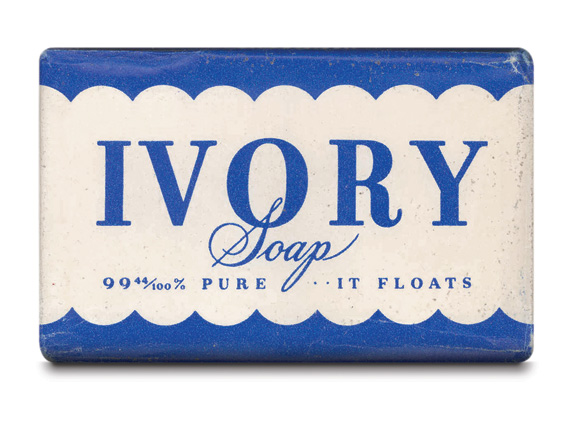The election is over, and it is time to assess what the hell just happened.
I will keep my strong political analysis for another platform, but I do want to share my assessment of the campaign from a marketer’s vantage point. I’m sure some of my bias will enter the analysis, so I have been thinking of the campaign as if it were marketing two brands like bars of soap.
I’m also cognizant that Hillary did win most the votes, but we base our system on the antiquated 18th-century construct of the electoral college where she lost. So, my assessment is critical of who won the game per the current, outdated rules.
Ten Marketing Lessons
- Emotions Versus Logic. From the highest level, Trump was running his campaign on raw emotion while Hillary focused more on logical arguments. If your audience, customers (or supporters) feel nothing, then they won’t act. I know this is a generalization across millions, but Trump supporters were more mobilized at a visceral level. Hillary voters are not motivated like Bernie’s followers in the primary. In the final analysis, raw anger, hatred, and fear trumped logic and reason. Hillary’s rational arguments that the economy was growing under Obama met with cold enthusiasm. Trump’s hot message of the decimation of factories and jobs met with real passion. Job loss felt real. GNP growth was an intellectual construct.
- Polls Aren’t Equally Effective from Cities to Rural Areas. If I have been listening to right wing radio for years, and a pollster calls, they are part of the establishment and the enemy. Are polling tools inadequate to measure their real opinions or intentions? Polling is already fraught with a margin of error that is higher than reported. I have been fearful during the campaign that what is reported en masse, became collective group thinks and confirmation bias. I ignored the outlier polls and focused on those that I wanted to hear. Marketers know that what consumers say is often not what they do. Read this great book on Unconscious Branding by Doug van Praett.
- Earned Media Tsunami. During the Republican primaries, Trump amassed an extraordinary amount of coverage that gave him access to the media in unprecedented ways. It wasn’t just Fox covering his entire speeches but MSNBC and CNN. That advantage continued into the general election. His message came through as content, where Hillary’s was through massive paid advertising. And the paid advertising messages just isn’t as useful. Both campaigns used social media to their advantage but Trump’s use of Twitter to directly communicate and fuel anger seemed to be more effective in key swing states like Florida, NC and Pennsylvania.
- Focus on A Few Themes. Trump did keep to a limited number of messages that he repeated over and over and over. As distasteful as they were to me and millions of others, he stuck to those messages. Yes, he did freelance all over the place, but that was seen by his followers as an unpolished and authentic person – an anti-politician. Where liberals viewed it as unhinged, Trump supporters saw it as real and genuine. Hillary’s messages were complicated and nuanced. It is hard to sell complex and nuanced to a general population. Hillary’s ads focused on Trump’s temperament, not on the economy. And as she should have learned from Bill Clinton, it is still the economy, stupid. Voters in those key swing states cared more about jobs than labeling Trump as a jerk. Her ads weren’t as effective as they may have been if they bet on jobs.
- Gave Agency To Change. Trump did harness the energy of the masses who hate Washington, again primed by years of right-wing radio. His voters have seen the factories, jobs and small towns disappearing over time. Suddenly whites are becoming the minority and it scares them. Trump became their hero to lead that charge. Romney never fit that outsider/anti-establishment person. Obama did this in 2008, but Hillary positioned as part of that establishment. In a sane election against a regular Republican, Hillary’s message could have connected better that as a woman, she could be that change agent. But this was no ordinary election cycle.
- Storytelling needs to be Simple. Hillary’s storytelling was complicated and made more difficult with the ever-persistent issue of the email server. Trump told a simple story that connected with the most important audiences in the most important states. (Florida, NC, Upper Mid-West). Again, I’m mindful that more Americans resonated with Hillary’s storytelling – but the game we played involved the primacy of certain voters in certain states.
- Leverage Big Assets. Hillary did many clever things like using celebrities to help register voters. To get into the big concerts like Beyonce, you had to pick up tickets next door to a place where you could be registered. Unfortunately, it wasn’t enough to overcome the messaging issues. How you can bring new customer’s (voters) to your franchise, can be through creative activities. But it requires execution and tactical planning and forethought. You need to leverage big assets to help you achieve tactical goals.
- Full Awareness/Tired Brands. Both candidates had almost 100% name recognition. Hillary’s brand had that awareness in the pollical arena whereas Trump’s was new to politics. Hillary’s brand was a well-established brand that stood for very specific attributes, but Trump took advantage of his ability to reinforce just a few negatives over and over. He helped shine a light on the negative enough so that it put doubt in the minds of some. Hillary’s counter positioning of Trump as unfit for office also was effective, but again – not to the audience that mattered in those key states.
- Segmentation Matters – Trump’s hyper-focus on whites appeared to treat this segment as if they were all that mattered. In the end, it appears to be what helped him win. No pundit or pollster believed it would work in the swing states, but we must admit it did. This campaign is a lesson of hyper-focus for marketers to examine in selling products. I fear what the repercussions will be in the political arena. To means something to a group, you may have to offend and be off-putting to others. I get how this work in marketing a product but it’s frightening to use this tactic in politics.
- A Vision and End State. Trump’s dystopian view motivated his audience. He was clear with the things he would do. Build a wall, end Obamacare and drain the swamp in Washington. He simply explained what the benefit would be of electing him. Hillary’s policies were long, complex and policy-rich. They just weren’t easy bite-sized bits of information. She appealed to me who would take the time to tell me how she would do something, but Trump’s followers didn’t care about details. They wanted a champion to believe in not someone to explain, like a teacher, how they’ll do it.
I’m curious if you see other lessons from a marketing viewpoint about the election. I’d love to hear your thoughts in the comment section.
Looking for help to grow sales, let’s talk. TEXT me at 919 720 0995.
Photo Credit: https://en.wikipedia.org/wiki/Ivory_(soap)





